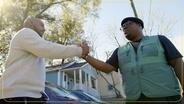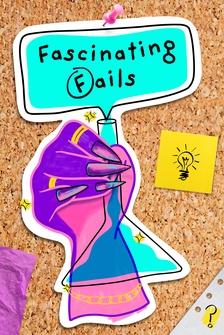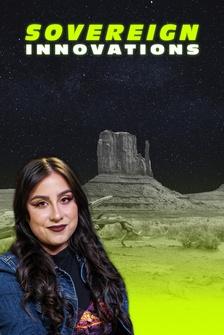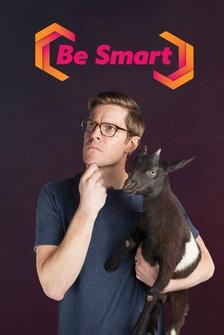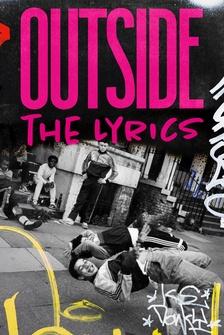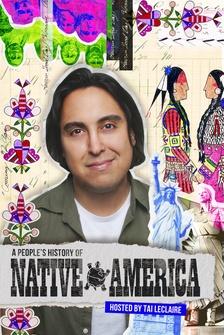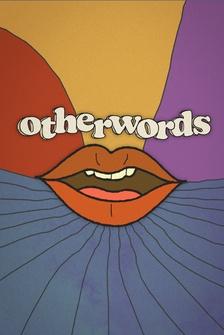(upbeat music) - Everybody needs a place to belong.
But in the midst of a housing crisis, it can feel almost impossible to navigate the market or afford a home.
Since 2021, mortgage interest rates have more than doubled.
The median price of a home in the US now costs more than five times the median household income.
Even a one-bedroom apartment will set you back an average of 1,500 a month.
When rents are high and mortgage rates are skyrocketing, people are struggling to find a place where they belong.
Craig Logan experienced this firsthand when he went house hunting here in North Charleston, South Carolina.
- Nearly two years ago, I went through the process of applying for a mortgage.
And it was like a wave of no.
- Since Craig entered the housing market, things have only gotten more competitive.
- So right now, in Charleston County, about 23% of people are able to afford a home.
So that means the other 77% of people are either forced to rent here or purchase a home in another county.
- So how do we tackle a problem that's as big as a house?
How do we belong to a community, even when that community doesn't belong to us?
We don't have to go it alone or start from scratch.
We're gonna meet some of the people who are working to make housing more attainable and figure out what you and I can do to find a place that feels like home.
I'm KJ Kearney, and this is "Citizen Better."
(upbeat music continues) While these certainly feel like unprecedented times, 2024 isn't the first time Black buyers have been locked out of housing opportunities.
The City of Charleston traces its first race-based zoning laws bach to 1931.
This practice of redlining restricted where Black buyers could purchase homes, effectively pushing them out of large parts of the city.
In Charleston and nationwide, infrastructure projects were also used to destroy many historically Black neighborhoods.
Over the following decades, Charleston became one of the fastest gentrifying cities in the country, with a population that was 2/3 Black shifting to be 2/3 white following these zoning laws.
And it's hard to claw back from that level of institutionalized inequality.
Even since the end of formal redlining, the rate of home ownership is still only at 44% for Black residents versus 74% for white residents.
In nearly every neighborhood across the country, you can find someone who's trying to level the playing field.
In my neighborhood, that's Craig.
(light music) Infamous Chicora-Cherokee neighborhood in North Charleston.
What made you decide to move over here, like, and get involved?
- So we have, you know, if you think about the makeup between homeowners and renters in the area, renters make up at least about 60% or more of the residents in our community.
And if you think about that, you have property owners who have no genuine connection to the community.
And so they're not thinking about: How do we better the community?
They're just collecting a check pretty much.
- We are in the historically Black neighborhood of Chicora-Cherokee, and there are many people here who have roots that last decades.
And when I was a little kid, I used to live over here, and specifically, in this house right here.
That was my Aunt Jane's house.
Me, my mom, my dad, my little brother, my Aunt Jane, we all lived right over there.
But we also have a housing gap, right?
And then in that housing gap, we need to try to bridge that gap between people who wanna stay in their community and people who wanna move in, but housing is not always attainable.
So for Black people who are trying to move into a community like this, how do we build up to that area where we have housing equality for all, where everybody has access to attainable, affordable housing?
- It starts really at a local level, right?
A lotta people think about policies, and you think either federal level or you think state level.
But a lotta decisions are made at a local level.
I know for myself, going to city council meetings or going to different housing meetings, I oftentimes would be one of not many Black people in those rooms.
And so for me, it was important just to know that, hey, if I had a seat at the table, I had to make sure that I spoke up, that I brought those concerns of the community that necessarily might not have that same seat or that same access.
- I'm not gonna lie, I mean, I'm a community organizer, so it's easy for me.
But for most people, the ideal of going to a city council meeting can be pretty intimidating, especially on top of everything they have to do in their life.
So how do kinda assuage the people's feelings or convince people, like, you should get involved?
Like how do people get involved?
- We started a small group called The Village.
And really, The Village is an opportunity for neighborhood residents to get connected to a text thread.
And what we do is just simply send out small reminders, right?
Again, life happens.
But if we can send you a small reminder to say, "Hey, jump on this neighborhood association meeting," or, "Hey, there's a city council meeting happening at 7:00, which you can watch online," they don't even have to leave out of the comfort of your own home.
So that actually works as a benefit to us, and it brings accessibility to more people.
- So us just showing up to that meeting or jumping on that Zoom is really powerful because it's a show of solidarity.
I'm not doing this alone.
The whole neighborhood association, we're doing this together.
I've got your back and you've got mine.
But it's also about small shows of solidarity.
We need people to feel like they belong in the neighborhood.
That could end up helping them buy a house.
But it could start with exactly what happened when Craig and I met up.
Even the way we greet each other is a way to say, "I've got your back and you've got mine."
And that's a base we can build this kinda organizing off of.
I know you're thinking, "KJ, what does that have to do with affordable housing?
It's not that deep."
But hear me out.
(light music) During the Vietnam War, Black soldiers were not being treated equally, denied promotions, and placed in more dangerous assignments than their white peers.
Frustrated with being asked to sacrifice for a country they didn't see reciprocating, they formed unofficial networks of support that started with giving DAP.
The unspoken hand gestures and greetings where a show of dignity and pride.
If nothing else, they had each other's backs.
When those same soldiers came home, white veterans were able to take advantage of free education and low-interest home loans through the GI Bill.
But Black veterans from World War II and beyond were frequently denied access to those same benefits.
The discrimination they faced in the service continued as they tried to buy homes and build their lives post-war.
And DAP was a symbol of the solidarity it took to be civically engaged.
(air whooshing) We're still trying to deal with the ripple effects of housing discrimination today.
And it can feel like fixing the problem is out of our control.
No, I can't set the mortgage rates or make rents suddenly drop, but what I can learn from folks like Craig and the Black soldiers who created the DAP is that we still have the power to create dignity and pride in our own communities.
For me, that looks like showing up to neighborhood meetings like this one, where I can get information on what's going on inside the political system.
But I can also learn about some ways that other folks, like Tony, who we're about to meet, are taking the kind of direct action where you can see immediate results.
(light rhythmic music) - Yeah, we provide essential repairs.
If a homeowner have a roof caving in, we'll do the roof repairs.
We'll do upgraded electrical.
We'll do plumbing for those homeowners free of charge.
We have a lotta seniors that live in the neighborhood.
They can't afford the repairs because they are on fixed income.
And we're able to provide them that assistance because of the fact that they've lived in these homes for like 30 years, and things have changed and they can't afford it any longer.
And so now, you've got people calling you and offering you money to buy your home.
And for some people, you know, they think it's easier just go ahead and sell that home, you know, and let them deal with all the repairs.
But the problem with that is, now, they can't find nothing in their price range to live in.
Now they have to move into rental.
- So what I'm hearing is that these repairs can actually stop people from being displaced in their home and having to go back into a very competitive housing market.
My question for you then is: Is this something that a professional has to do, or could people just do this on their weekend, like on their free time, gather some friends up?
- Yes and no.
We use a combination of both professional contractors and volunteers.
Some things that we do, home repairs we call cosmetic.
Painting, you know, those are cosmetic things.
We can do that.
But when we need professional, like electricians, a actual real plumber, yeah, then we will hire certified licensed contractors.
If you do the renovation, your appraised value of your home will go up.
Because even just adding a new coat of paint on your home can give you a higher appraised value of your home.
So that's one of the things that we look at too, because that helps.
(upbeat music) - It's like the ripple effect we talked about.
If we show up for somebody in the neighborhood, that builds relationships and makes the community stronger.
And when it comes time for policy decisions to be made, a strong community has power.
That's all civic engagement really is: a way of showing each other, I've got your back and you've got mine.
All the way from DAPing someone up, to participating in the neighborhood group text, to helping your neighbors with repairs, to showing up at a neighborhood association meeting.
It's all part of building solidarity and a space for everyone to belong.
I'm KJ Kearney, and thanks for watching "Citizen Better."
(upbeat music continues)



